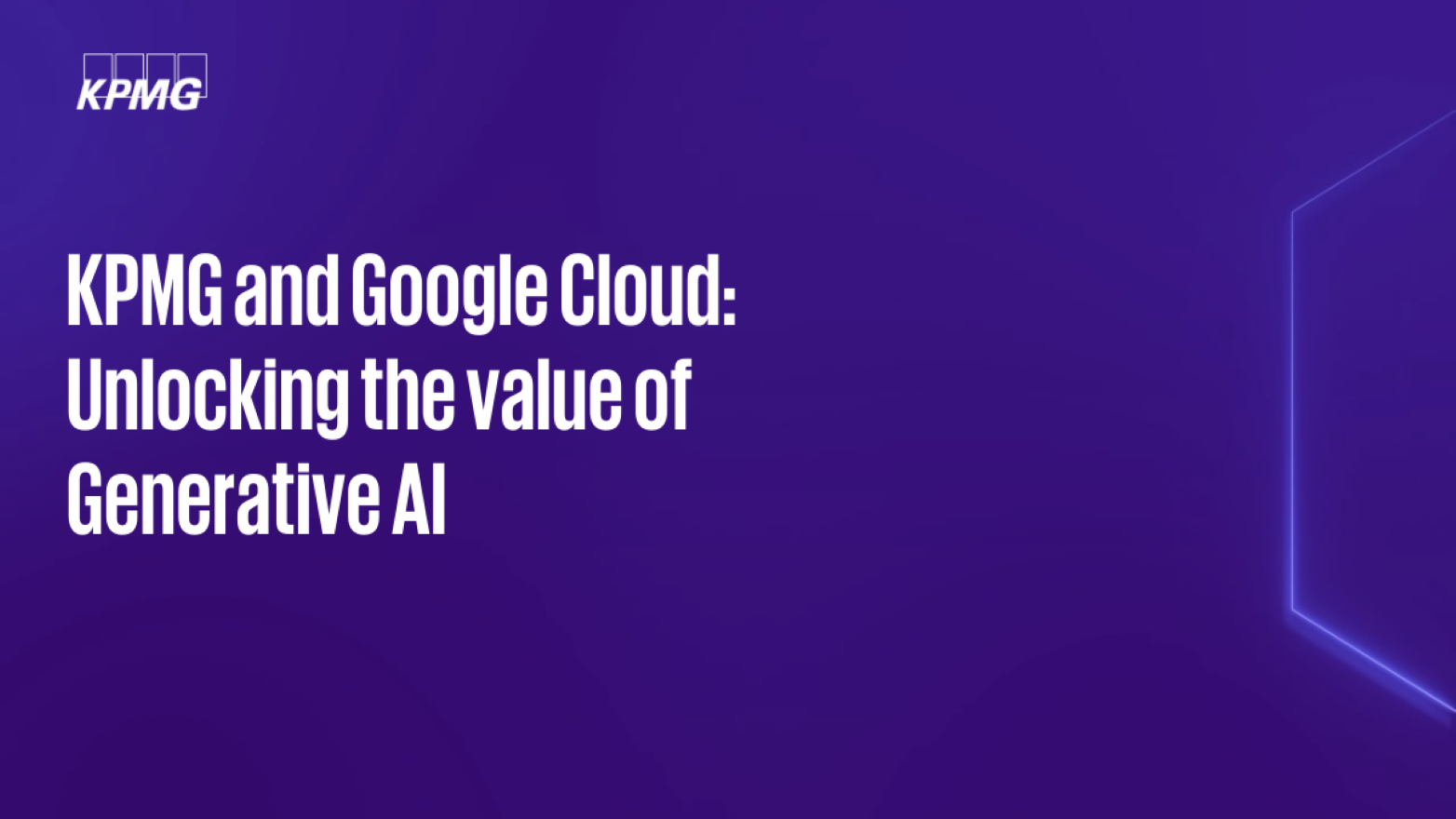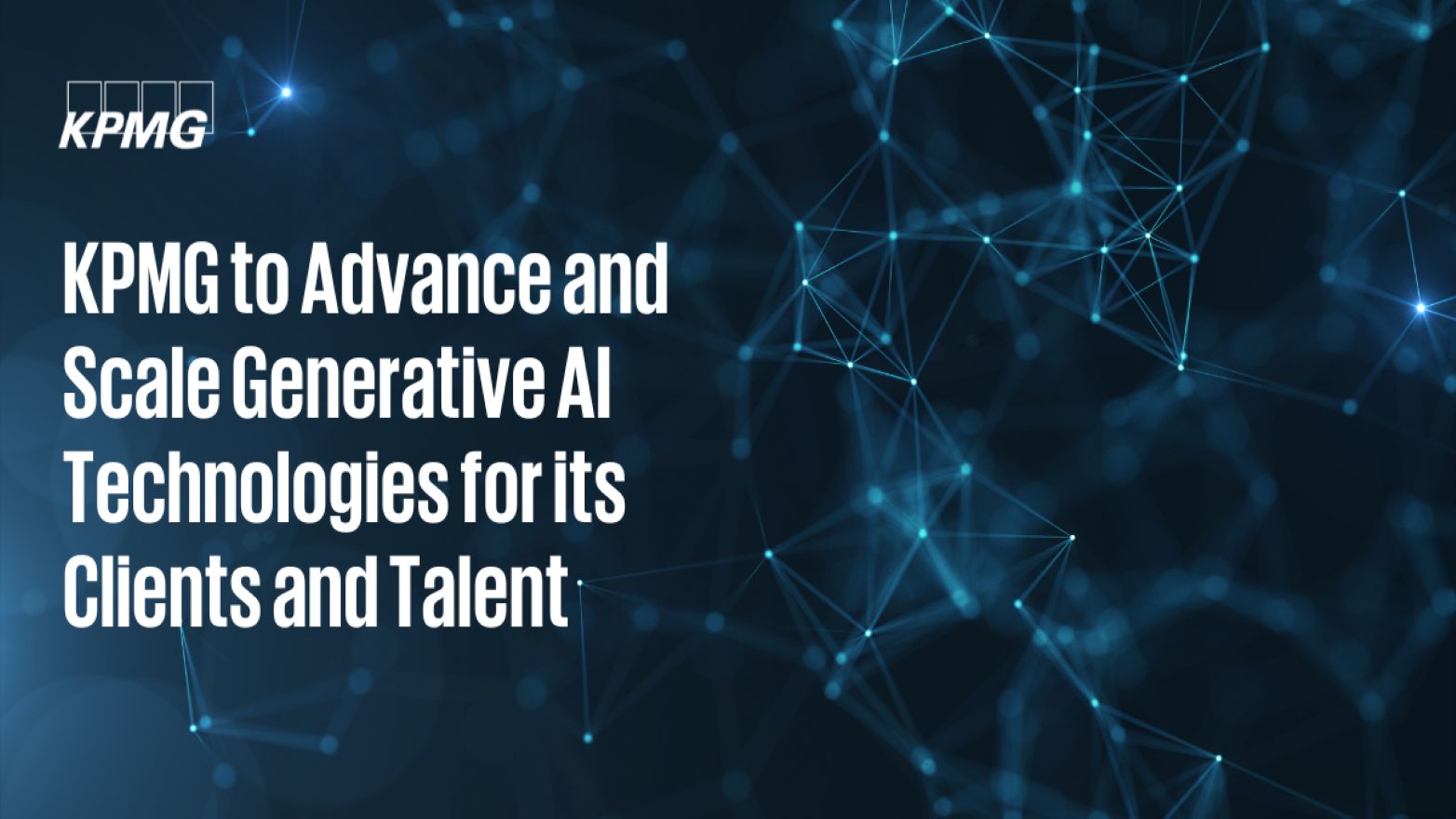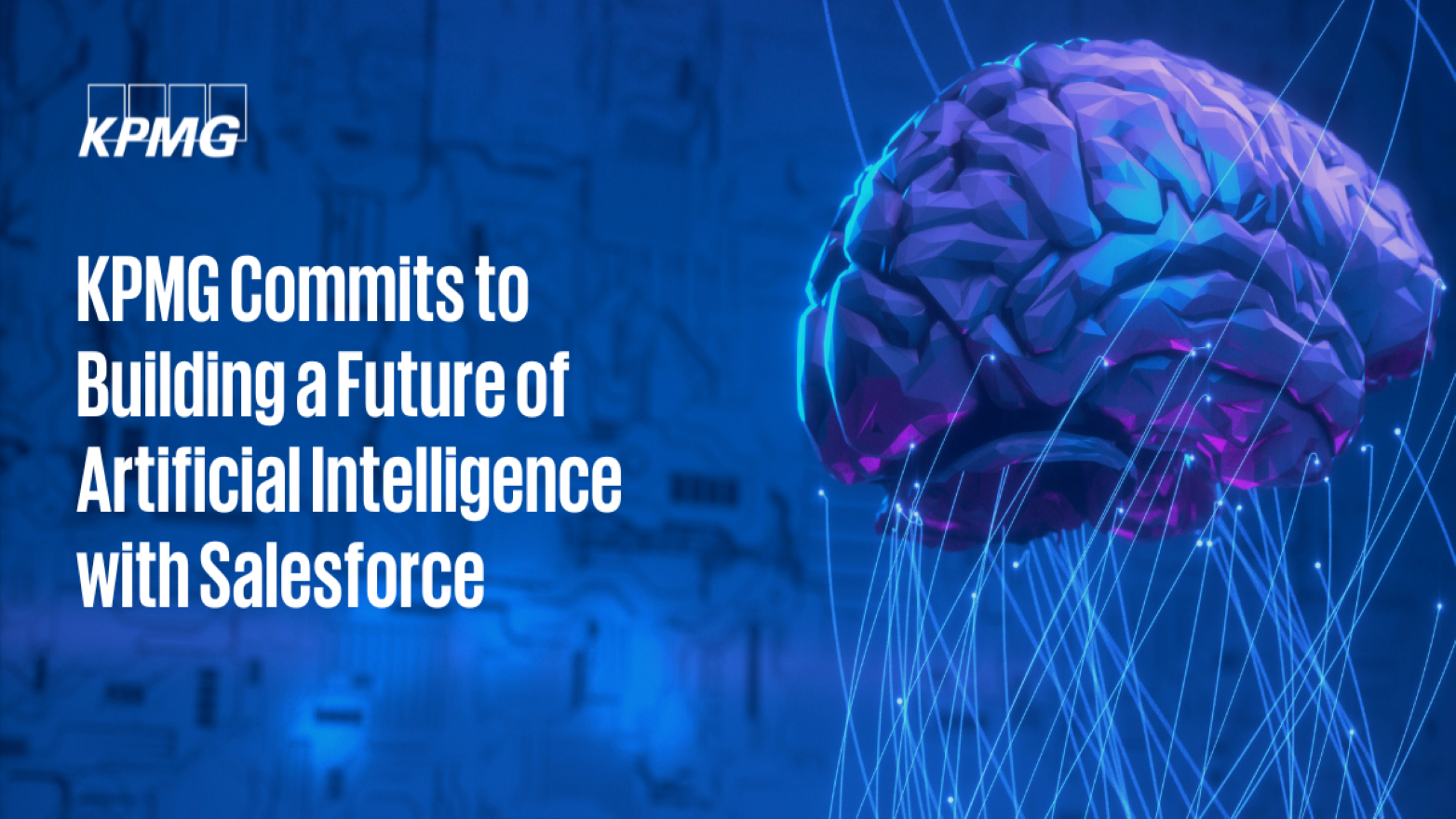Generative AI has an increasing effect on the workforce and productivity – KPMG survey
Generative AI has in increasing effect on the way organizations do business and it is already impacting the workforce.
Generative AI has in increasing effect on the way organizations do business and it is already impacting the workforce. In fact, 72% of respondents in a 225 U.S. executives survey recently conducted by KPMG LLP said that generative AI could play an important role in increasing productivity. In addition, 66% of the respondents felt that there would be a change in the way people work in the future, while 62% also felt that it could end up encouraging innovation and help in creating more products and services.
However, with the implementation of generative AI, survey participants are mindful of potential negative implications, with 47% expecting decreased job security, and 41% being concerned with reduced opportunities for overall development. Almost two-fifths (39%) also believe that there could be an increased antisocial behavior in the office setup as they expect generative AI to reduce social interactions.
“There are two elements when thinking about the human-side of generative AI,” said Felicia Lyon, Principal, Human Capital Advisory, KPMG LLP. “Firstly, how to leverage an employee-driven Innovation Hub to have the front-line workforce be involved in incubating and testing new AI technology, and the impact to the work and jobs; and secondly how to deconstruct the work, leveraging AI to its fullest to get tasks done faster, and then reconstructing new roles and jobs that tap into a higher power of employee engagement – doing meaningful work that drives an organization’s mission and vision forward.”
Generative AI Requires New Talent & Training
Two-thirds of U.S. executives (66%) said that the implementation of generative AI would require both hiring new talent, as well as training existing talent. In fact, 71% of executives believe that the IT/Tech function will need to hire as well as train employees for a smooth implementation of generative AI. During implementation, executives believe knowledge about AI, ML, NLP, text-to-speech and speech-to-text would be deemed the most anticipated skillset.
“When it comes to hiring and upskilling, it is critical to build a culture of using AI responsibly,” added Lyon. “Helping employees understand the best way to use AI for their business, organizations can maintain trust in the market and internally through their employee brand.”
Key Findings from the Survey:
- 72% said that generative AI could play an important role in increasing productivity in the workplace.
- 66% said that generative AI would change in the way people work in the future.
- 62% said that generative AI could end up encouraging innovation in the workplace and help in creating more products and services.
- With the implementation of generative AI, 47% are expecting decreased job security, and 41% are concerned with reduced opportunities for overall development.
- 66% said that the implementation of generative AI would require both hiring new talent, as well as training existing talent.
- 66% feel that they need to hire and train employees for the implementation of generative AI into their business.
- 76% believe that IT and software related jobs will witness a positive impact with a widescale adoption of generative AI.
Generative AI and job creation
Three fourths of U.S. executives (76%) believe that IT and software related jobs will witness a positive impact with a widescale adoption of generative AI. As a result, the top three positively affected jobs in the IT/Tech function will be: IT and software related jobs, creative jobs and customer service jobs. In the non-IT functions, IT and software related jobs, creative jobs and financial jobs complete the top three.
According to survey results, administrative jobs, including data entry and record keeping, are expected to face the most negative impact across all sectors and functions, with 64% of respondents believing that large scale adoption of generative AI will take over such responsibilities.
Twenty percent of the overall respondents believe that generative AI will have a positive impact on manufacturing jobs, while 24% of respondents (including >33% respondents from both Consumer & Retail and Industrial Manufacturing sectors) believe the adoption to impact these jobs negatively.
“Generative AI provides a great opportunity for organizations to engage their workforce in a new way,” said Lyon. “There is an opportunity to build data literacy with the existing workforce, demonstrate how AI can enhance existing jobs, and also create new career paths. By thinking how to use AI to engage your talent differently, organizations can increase employee engagement and connectivity.”
A Clear People Strategy is Needed Now
Sixty-six percent of U.S. executives feel that they need to hire and train employees for the implementation of generative AI into their business, but only 12% of the respondents currently think that their workforce is adept in terms of adopting generative AI. A quarter of the U.S. executives do not have a clear people strategy for integrating their workforce with generative AI capabilities and almost a third of the respondents feel that they are expected to experience a pushback from their workforce amidst the adoption and integration phases.
“The implementation of generative AI in an organization’s business, customers and employees is still in early stages,” commented Lyon. “Organizations that win in the talent marketplace are those that look at their talent strategy and ask these questions: Are we creating a compelling value proposition to tech talent that we need to mature our AI practices? Are we recognizing and rewarding responsible generative AI usage? And, are we thinking differently about the work itself to capture the positive impacts of AI and upskilling our existing employees, helping them embrace new ways of working?
“If organizations pair responsible AI at work with the higher levels of productivity in a four-day work week shown by recent studies, makes a compelling employee proposition with a potential positive impact to the top and bottom lines.”
For more insight, check out the full KPMG Generative AI Survey.
About KPMG LLP
KPMG LLP is the U.S. firm of the KPMG global organization of independent professional services firms providing audit, tax and advisory services. The KPMG global organization operates in 143 countries and territories and has more than 265,000 people working in member firms around the world. Each KPMG firm is a legally distinct and separate entity and describes itself as such. KPMG International Limited is a private English company limited by guarantee. KPMG International Limited and its related entities do not provide services to clients.
Some or all of the services described herein may not be permissible for KPMG audit clients and their affiliates or related entities
KPMG is widely recognized for being a great place to work and build a career. Our people share a sense of purpose in the work we do, and a strong commitment to community service, inclusion and diversity and eradicating childhood illiteracy. Learn more at www.kpmg.com/us.
Explore more

Technology and innovation
Implications of AI, digital disruption, and tech transformation.

KPMG and Google Cloud Expand Alliance to Help Organizations Unlock Value with Google Cloud Generative AI
Expanded alliance will bring Google Cloud’s innovations in AI and data analytics to financial services, healthcare and retail industries

KPMG to Advance and Scale Generative AI Technologies for its Clients and Talent
KPMG announces a new initiative to deploy a series of generative artificial intelligence (AI) investments and alliances to empower its workforce, further advance cutting-edge client solutions and reimagine how the 125-year-old firm operates.

KPMG Generative AI Survey
Executives expect generative AI to have an enormous impact on business, but most say they are unprepared for immediate adoption, according to a new survey by KPMG U.S.